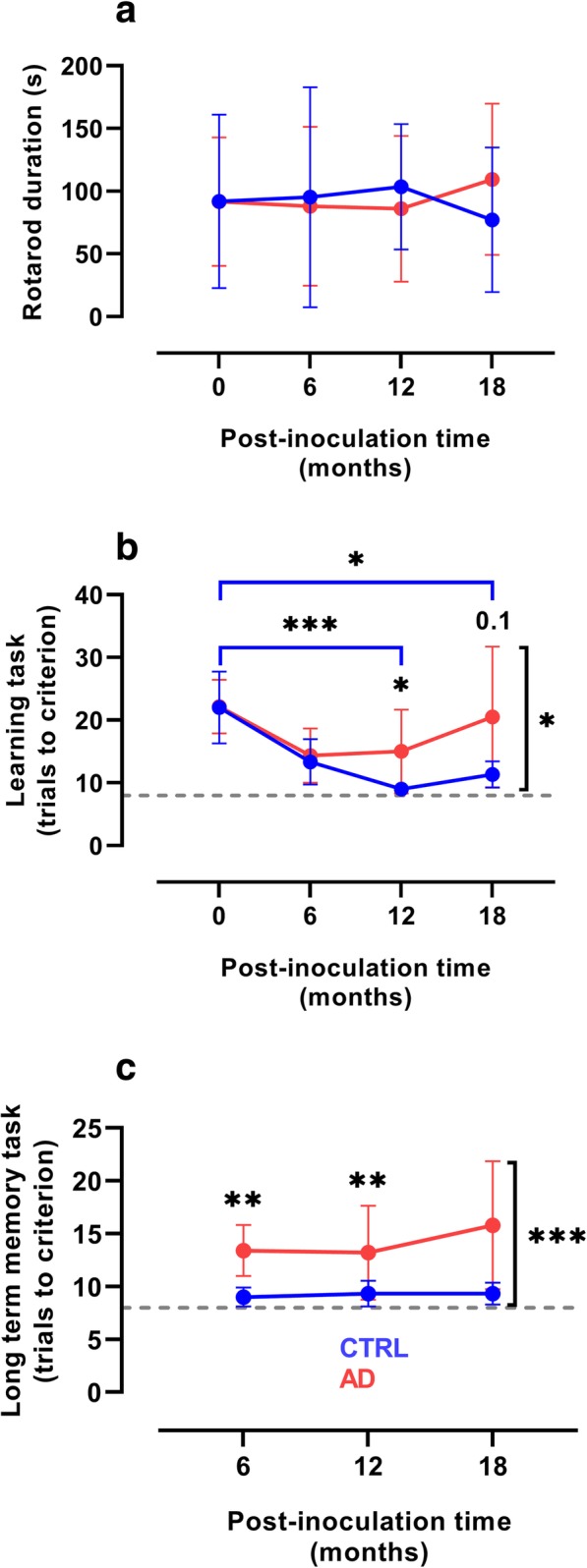Fig. 1.

Cognitive dysfunction in Alzheimer-inoculated mouse lemurs. a The rotarod test did not reveal any motor dysfunction in either Alzheimer- (AD) or control- (CTRL) inoculated group. b Progressive learning impairment in the animals of the Alzheimer-inoculated group. Animals allocated to Alzheimer- and control- inoculated groups performed similarly before inoculation and improved similarly up to 6 mpi. Only the control-inoculated group continued to improve at 12 and 18 mpi (p < 0.0001 and p = 0.01, respectively). Learning abilities were also lower in the Alzheimer-inoculated group than in the control-inoculated group at 12 mpi (p = 0.03) and tended to be lower at 18 mpi (p = 0.10). The overall performance of the Alzheimer-inoculated group was significantly worse than that of the control-inoculated group (p = 0.02). c The overall performance of the Alzheimer-inoculated group in the long-term memory task at 6 and 18 mpi was significantly worse than that of control animals (p = 0.0002, 0.0036, and 0.0024, respectively). *p < 0.05; **p < 0.01; ***p < 0.001 (n = 6 per group, two-way repeated measures ANOVA with Bonferroni’s post-hoc tests). Plots presents mean ± standard deviation. Dashed lines in (b, c) indicate the best possible scores
